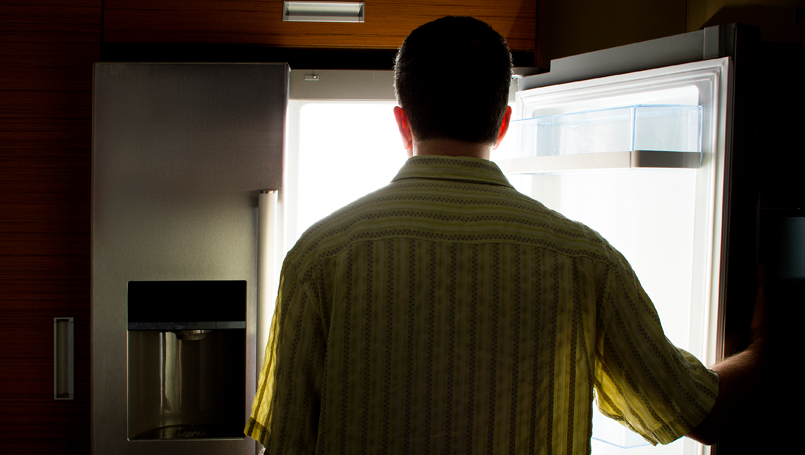
Emotional eating occurs when people use food to cover or address intense emotions. Often times those emotions are negative – sad, stressed, grieving, lonely, etc. – but happiness or comfort can also trigger emotional eating.
Everyone is different.
“Some individuals rely on food to cope while they are experiencing a life event, others utilize food after the event is over as a reward or recovery from the event,” explains Kevin Sloan, psychologist at the Beaumont Weight Control Center. “Part of the problem is that when the goal is to distract or enhance emotions, food actually provides the desired result ‘temporarily.’”
That feeling also creates a habit of utilizing food to address emotions and prevents an individual from utilizing more adaptive approaches.
RECOGNIZING EMOTIONAL EATING
The simplest way to determine if you are over-consuming to manage an emotion is to ask yourself, "Am I eating because I am hungry?" or "What's going on in my life and how am I coping with this?"
These questions will often result in the awareness that food is being utilized for more than hunger and there is a potential to unconsciously overeat.
EMOTIONAL EATING TRIGGERS
There are many triggers for overconsumption in our culture today. Negative emotions such as sadness and stress are the most commonly thought of emotions, but many individual over-consume in social eating situations to enhance the enjoyment of the event. A great deal of our social interactions today involve food.
Another common trigger is boredom. We often engage in a lot of activities and receive a lot of external stimulation from television, computers, and phones.
Sloan says, “When there is a void in stimulation, food is often utilized to fill this void.”
When there is a void in stimulation, food is often utilized to fill this void.
Sloan
TURN YOUR EMOTIONS INTO SOMETHING POSITIVE
The first step is self-awareness of the behavior of over-consuming to manage emotions.
The next step is deciding that this is not the most effect manner to handle emotions and then deciding that you would like to replace this behavior.
After this, a viable alternative is needed; something that positively impacts emotions. This could be physical alternatives such as light physical activity, deep breathing, temporarily leaving a situation to regain composure and focus or mental approaches such as looking at alternative ways to interpret the events or look for options and resources to assist with managing the situation (responding versus reacting).
It is also important recognize the objective is not to completely eliminate emotional eating; this is most often highly unlikely due to the long history that we all have with using food to manage emotions. The goal is the introduction of newer more adaptive options so the food becomes, according to Sloan, "a thing you use, but not the thing you use to cope."
Overeating isn’t the only negative behavior that can result in situations of intense emotions. Individuals may also engage in other behaviors such over consuming alcohol, disrupting interpersonal relationships, isolating from others, engaging in self-sabotaging decisions/behaviors.
So, outside of rewarding yourself with food, how else can you focus your positive emotions?
One of the most important things to focus on is life balance. We all have experienced moments and periods when things were running smoothly. The objective is to make decisions and modifications in order to reinforce and sustain that state or efforts to re-instate it.
The recognition that over consuming food has not contributed to that positive balance in the past is also an important insight. It’s important to recognize that life balance does not always involve the absence of stressors and hassles in our lives, but being aware of non-eating options and choices to assist with the management of the emotions associated with those events.
